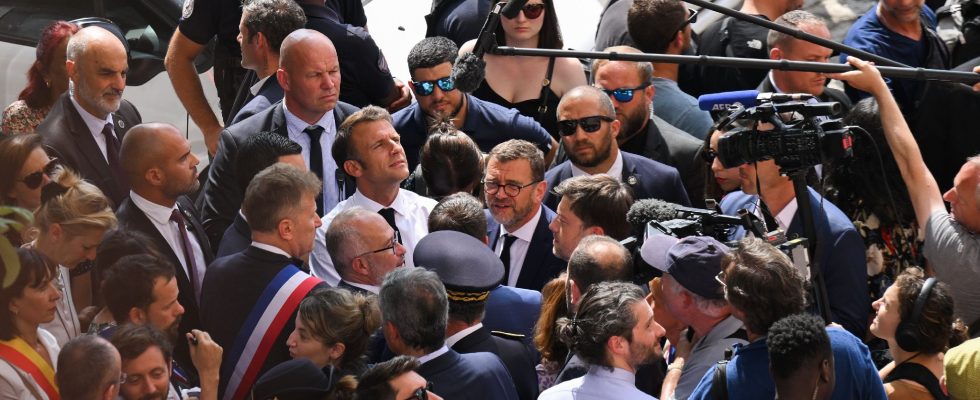Sometimes a figure says more than an editorial. From May 2007 to April 2018, Seine-Saint-Denis received a record number of 2,700 official visits, an average of 20 visits per month. That is to say one per day, almost, if we subtract the weekends… This score from the prefecture of Seine-Saint-Denis, quoted in the 2018 parliamentary report, sums up everything about the deleterious gap between the pervasiveness of communication and the persistence of problems over the past forty years. “The less it can, the more it causes”, say the grandmothers. As ministers, prime ministers and presidents announced “priority policies” with bar buildings in the background, it was on the ineffectiveness of public action that they pointed the cameras. On education, on security, the announcement effects end in a wet firecracker. And voluntarist speeches – sometimes matadors, sometimes empathetic – no longer have any value on the Stock Exchange of popular credibility.
We could have fun with “a quiz of the priority commitment of the State”, if the cumulative effect of these speeches were not tragic. Jacques Chirac, in Bobigny, in January 2007: “The key is the massive commitment of the State, of which this is one of the essential missions. The key is the gathering of all French people around of this objective.” Nicolas Sarkozy, in Paris, in October of the same year (became president): “For the inhabitants of neighborhoods in difficulty, I therefore want to set up a real action plan […] What I want is for the state to regain its full place so that success throughout the territory depends on the republican school, on security in the neighborhood, on personal effort, not on the community.” François Holland, La Courneuve, October 2015: “Resources have been targeted in 200 neighborhoods with the greatest social difficulties. It is the contribution of the State which creates the leverage effect and which makes it possible to have this mobilization.” Emmanuel Macron, Roubaix, November 2017: “The method will be simple, it is first of all to a real national mobilization. This national mobilization must somehow finalize a structured battle plan.”
We could write the next ones; we could guess the words that will punctuate the speeches, as in these music mills where small reliefs printed on a roll define in advance the refrain that will come out… In their information report on the evaluation of the action of the State in the exercise of its sovereign missions in Seine-Saint-Denis (2018), MPs François Cornut-Gentille (LR) and Rodrigue Kokouendo (LREM) noted: “The measures adopted (new measures, statutory benefits, etc.) are based on the assumption that the crisis in public action originates solely from the lack of resources or an inadequacy of legislative and regulatory measures. However, the crisis of public action is deeper. It must lead to questioning not only the extent of the means implemented, but above all their nature, their mode of action and even their purpose.” But who still reads parliamentary reports?
